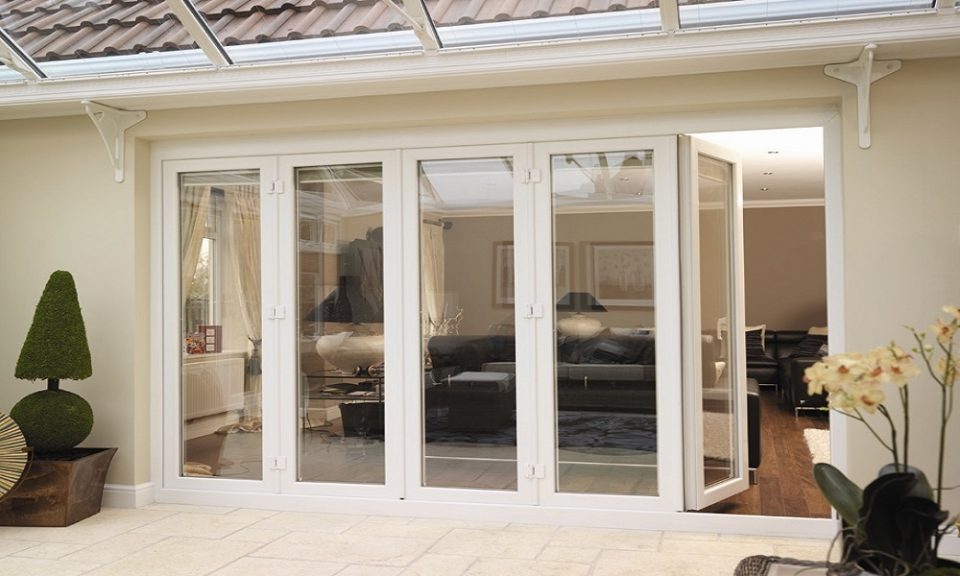When it comes to designing or renovating small spaces, every square inch matters. The type of door you choose can significantly impact how functional and stylish your space becomes. While folding doors, sliding doors, and casement doors each offer their own advantages, the question remains: Which is best suited for small spaces?
In this blog, we’ll explore the pros and cons of each option, with a particular focus on aluminum folding doors, to help you decide which door style fits your compact area the best.
Why Choosing the Right Door Matters in Small Spaces
Doors are not just barriers between rooms—they can influence how spacious an area feels and how effectively it’s utilized. In small spaces, the wrong choice can make a room feel cramped, block essential pathways, or limit furnishing options. The right door should maximize functionality while maintaining the aesthetic balance of the area.
A Quick Overview of Folding, Sliding, and Casement Doors
Before diving deeper, here’s a brief introduction to the types of doors in question:
Folding Doors: Often called bi-fold doors, these consist of multiple panels that fold and stack to one or both sides when opened.
Sliding Doors: aluminum sliding doors slide horizontally along a track, requiring no inward or outward space to open.
Casement Doors: Traditional single or double swing doors attached to hinges, opening inward or outward like a book.
The Case for Folding Doors in Small Spaces
Folding doors stand out as a smart choice for small spaces due to their unique ability to combine flexibility, modern aesthetics, and efficiency.
Advantages of Folding Doors
-
Space Optimization
Folding doors are designed to maximize usable space. Unlike casement doors, which need a swing radius, folding doors stack neatly to the side when opened, leaving the doorway free without eating into room dimensions.
-
Flexible Design
With folding doors, you can choose between partial or full openings. For example, in cramped spaces, partially folding back the panels still allows ventilation or access without needing a large clearance.
-
Indoor-Outdoor Connection
Folding doors work well in small spaces that open to a balcony, patio, or garden. They blur the boundary between indoors and outdoors, making your space feel roomier and connected to its surroundings.
-
Modern and Sleek Appearance
Compact spaces often require clean, clutter-free aesthetics. Folding doors with slim frames, or frameless glass designs, provide a modern and minimalist look that complements smaller areas beautifully.
-
Variety of Materials Available
From aluminum and UPVC to glass and wood, folding doors come in materials and finishes to suit both aesthetics and functionality. For instance, glass folding doors for interiors can create the illusion of a larger space through transparency.
Challenges to Consider with Folding Doors
Stacking Space Requirements: While folding doors don’t need a swing radius, the folded panels still require some stacking space on the side. You’ll need to account for this in your layout.
More Moving Parts: Folding doors rely on hinges, tracks, and rollers, which may require regular maintenance to keep them operating smoothly.
Cost: Depending on the material and design, folding doors may be more expensive than casement or sliding options.
Sliding Doors: A Compact Alternative
For spaces with limited room for door clearance, sliding doors are an excellent solution. They don’t swing outward or inward, saving space by moving entirely within their track.
The Pros of Sliding Doors in Small Spaces
Excellent for smaller rooms or connecting compact interiors like kitchens, bedrooms, or bathrooms.
Allows for wide openings without requiring interior or exterior clearance.
Enhances natural light (when glass panels are used) and creates a modern vibe.
The Cons of Sliding Doors
The opening width is limited to one sliding panel, meaning less accessibility compared to folding doors.
Tracks can collect dust and debris over time, increasing maintenance requirements.
Casement Doors: Not Ideal for Tight Areas
Though timeless and versatile, casement doors are less suited for small spaces due to their swing radius. Whether opening inward or outward, these doors require clearance that can complicate a tight room layout.
The Pros of Casement Doors:
Energy efficient, with an airtight seal.
Simple design and easy to maintain.
The Cons for Small Spaces:
The inward or outward swing requires additional space.
More limitations on furniture arrangement and pathways.
Why Folding Doors Are a Winner for Small Spaces
When comparing the options, folding doors emerge as a standout choice for small spaces, particularly in situations where balance, functionality, and style are essential.
Here are situations where folding doors truly shine:
Interior Separation: Use folding doors to segment small spaces, like turning a studio apartment into a bedroom and living area.
Balcony and Patio Access: Folding doors open up the area to the outdoors, making your space feel larger.
Storage Areas or Closets: Compact panels make folding doors ideal for wardrobes or tucked-away storage zones.
Choosing the Right Door Style for Your Small Space
When it comes to choosing doors for small spaces, it’s all about balancing aesthetics with functionality. While sliding doors are a solid runner-up option, folding doors are the go-to choice for maximizing flexibility and space efficiency. Their ability to fold away neatly, combined with their modern design versatility, makes folding doors a standout choice for compact living.
However, for those who value simplicity over all else, sliding doors can provide a sleek alternative, especially in narrow spaces, while casement doors are better reserved for larger areas due to their clearance requirements.

